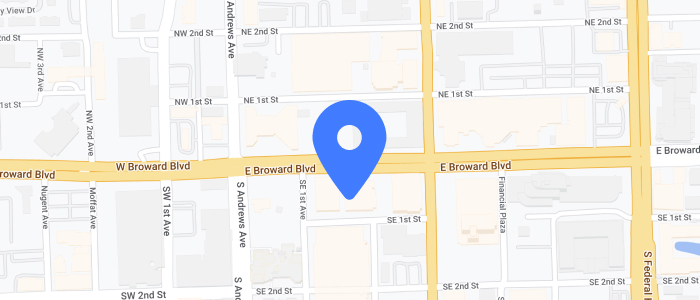





Florida Foreclosure Lawyers
The Neustein Law Group, P.A. attorneys and legal staff are focused on commercial litigation and foreclosure cases in the state of Florida. Attorneys and staff have over 70 years of combined experience in Florida and are your Foreclosure Attorney, Foreclosure Defense Miami, and Foreclosure Attorney Miami.
At The Neustein Law Group, P.A., we aggressively defend and litigate:
- Residential Foreclosures
- Commercial Foreclosures
- Commercial Litigation
- Quiet Title Actions
- Mortgage Loan Modifications
Florida commercial lawyers, business litigation attorneys, and residential foreclosure lawyers work with homeowners to help stop foreclosures in some of the areas hardest hit by Florida’s foreclosure crisis, including Miami-Dade County, Broward County, Palm Beach County , Hillsborough County and all counties throughout the State of Florida.
Foreclosure Attorney Florida
Our foreclosure litigation lawyers fight unfair banks and predatory lending practices and file quiet title actions for eligible properties. For most Florida families, their home is their biggest asset. Contacting a Florida foreclosure defense lawyer can make a difference when it comes to the future financial well-being of you and your family.
Don’t just walk away from your mortgage. You should consult with a knowledgeable attorney prior to negotiating a voluntary surrender or short-sale of your Florida home, as those actions may have serious tax and legal implications. The experienced foreclosure attorneys of Neustein Law Group, P.A. aggressively defend foreclosures on the merits of your case, helping you remain in your home during the foreclosure process, giving you and your family the time and ability to begin rebuilding your finances.
Neustein Law Group – Foreclosure Attorney Florida
Florida’s real estate bust, historic job losses among working families, and the predatory lending practices and greed of banks, mortgage companies, and even real estate agents and appraisers, have left thousands of Florida homeowners facing foreclosure. In fact, by some estimates, as many as 1 in 4 homeowners in the Miami metro area are 90 days late or more on their mortgages and 40% of homeowners in Greater Miami and Greater Fort Lauderdale are underwater in their loans. The top three U.S. metropolitan areas with the highest foreclosure rates are Miami, Jacksonville and Tampa. Neustein Law Group, P.A. is a leading foreclosure litigation firm with experience in the courts across the state of Florida. That familiarity gives you an edge in defending your home from foreclosure.
Florida Governor Rick Scott recently signed legislation fast-tracking foreclosure cases in an effort to clear the courts from the backlog of cases. Neustein Law Group, P.A. knows the banks tricks and can help you save your home. The banks have lawyers assisting them, and so should you. It is more important than ever to ensure you consult with an experienced attorney immediately in order to better protect you, your family and your home from the bank. Time is of the essence. There are options to foreclosure. You don’t have to lose your home. You can fight to save your home from foreclosure and the attorneys at Neustein Law Group P.A. can be your first line of defense. Call us now at our main office or one of our convenient satellite offices near you at (305) 531-2545 (direct HQ) or toll free 1-888-400-ATTY (2889) for a free consultation with a veteran foreclosure litigation attorney.
NLG Blog
¿Es el Plan de Arrendamiento de Hipoteca el Adecuado para Mí si Vivo en el Condado de Palm Beach? October 9, 2023 The Law Office of Neustein Law Group ¿Es el Plan de Arrendamiento de Hipoteca el Adecuado para Mí si Vivo en el Condado de Palm Beach? Un plan de arrendamiento de hipoteca puede... View More →
Bancarrota contra Mitigación de Pérdida en el Condado de Broward October 9, 2023 The Law Office of Neustein Law Group Bancarrota contra Mitigación de Pérdida en el Condado de Broward Cuando usted enfrenta un embargo, podría considerar medidas alternativas... View More →
Nueva Ola de Embargos en Florida del Sur Relacionados con el Escándalo de las Firmas (Robo-Signing). ¿Qué está causando la nueva ola de embargos en Florida del Sur? October 9, 2023 The Law Office of Neustein Law Group Nueva Ola de Embargos en Florida del Sur Relacionados con el Escándalo de las Firmas (Robo-Signing). ¿Qué está causando la nueva ola de embargos en... View More →
Client Reviews
Excellent attorney, very personableI contacted attorney Neustein to support me in a foreclosure case (as the defendant). I was immediately impressed at how personable Frederick was. He was kind, ...
Frederick Neusein for all you legals needs! As Real estate Professional and client I know Frederick Neusein for over 5 years. All I can say he is very knowledgeable high experience in foreclosure defense...
Professional, trustworthy, responsive & understanding Rick is the consumate professional. He gave me excellent advice in a calm demeanor and i felt very comfortable that he was looking to protect MY interests...
Our Videos
Our Offices

18305 Biscayne Blvd #250
Aventura, FL 33160

Miami, FL 33156

28th Floor
Miami, FL 33131

Fort Lauderdale, FL 33301

Boca Raton, FL 33431

West Palm Beach, FL 33401



2202 N Westshore Blvd #200
Tampa, FL 33607

Jacksonville, FL 32207
Get in Touch
Fill out the contact form or call us at (305) 531-2545 or (888) 400-ATTY (2889) to schedule your free consultation.Free Consultation
Available 24/7
No Fees, Unless You Win for Injury Cases






